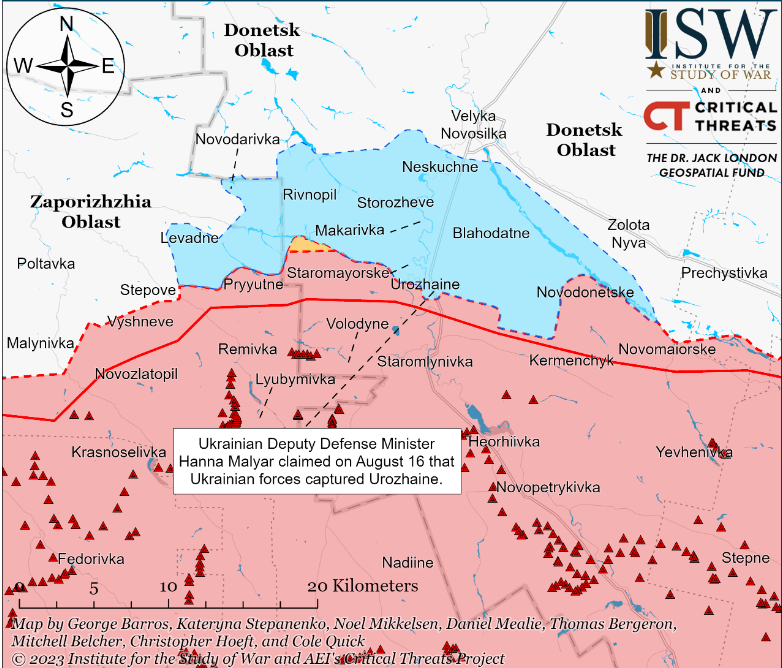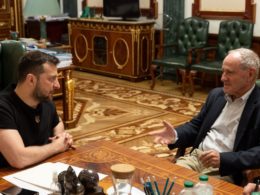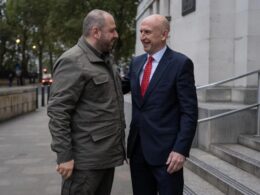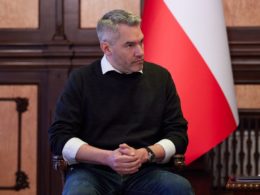Recent Ukrainian gains near the Donetsk-Zaporizhzhia border have prompted Russian commander Alexander Khodakovsky to propose freezing the war in Ukraine along the current frontlines.
“Vostok” Battalion commander Alexander Khodakovsky suggested that Russia freeze the war in Ukraine along the current frontlines, ISW reports.
The US-based think tank, Institute for the Study of War (ISW), says this reintroduces an earlier narrative made in April by Yevgeny Prigozhin, head of the Wagner Group military contractor.
In recent comments, Khodakovsky stated that Russia is unlikely to be able to fully defeat Ukraine militarily soon or occupy major Ukrainian cities. He concluded that Russia may enter a ” neither peace nor war” phase with Ukraine. Thus Khodakovsky suggested instead that “freezing the conflict could sufficiently weaken Ukraine while allowing Russia to exert more influence.”
Khodakovsky’s proposal follows recent Ukrainian advances near the Donetsk-Zaporizhzhia border that have weakened confidence in Russia’s defenses there, relating to poor Russian counterbattery capabilities, heavy Russian losses, exhausted Russian forces, and a lack of reserves. Earlier this month, he had called for an operational pause to allow Russian forces time to regroup.
ISW assessed that a temporary ceasefire in Ukraine and the protraction of the war would only benefit Russia by allowing Russian forces to reconstitute and letting Russia wear down Western support for Ukraine.
Other key takeaways from the report:
- Russian forces have dedicated significant effort, resources, and personnel to hold settlements such as Robotyne and Urozhayne, and recent Ukrainian advances in these areas are likely reflective of a broader degradation of defending Russian forces.
- Ukrainian forces continued counteroffensive operations on at least three front sectors on 17 August and advanced near Bakhmut and western Zaporizhzhia Oblast.
- Russian reports about the state of the Chonhar Bridge in occupied Kherson Oblast indicate that Ukrainian strikes disrupted a major Russian ground line of communication (GLOC) to Crimea for 11 days.
Read also:
- Washington Post: Russia aims for thousands of drones by 2025
- UK intel: Russia uses education as propaganda in occupied territories of Ukraine, issuing pro-Kremlin history textbooks
- Frontline report: Ukrainian troops launch offensive on Robotyne, successfully using Leopard tanks






